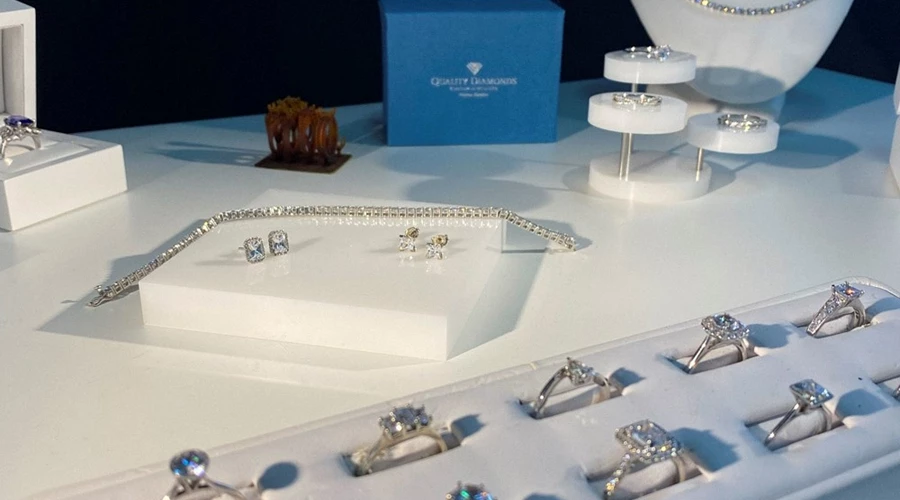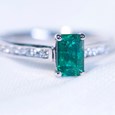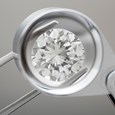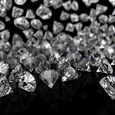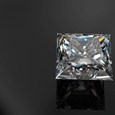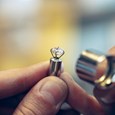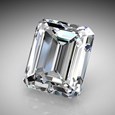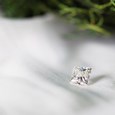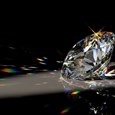Sign up for our Newsletter
The 3 Biggest Mistakes You Can Make When Buying Diamonds as an Investment - and How to Avoid Them
June 12 2025
Investing in diamonds is a tricky business. So tricky, in fact, that the head honchos at Quality Diamonds have a running disagreement about it.
Paul thinks the pitfalls are so great that potential diamond investors should just be turned away whereas Dave thinks informing investors about the pros and cons is the best way for them to avoid costly mistakes.
Fortunately, Dave’s in charge of the blog, so if you’re planning to invest in diamond jewellery or loose diamonds, read on…
Are diamonds a good investment?
On paper, diamonds make great investment sense. They have high intrinsic value, they’re always in demand and they last forever - plus, they’re small, portable and easy to store (unlike that priceless Ming vase you just had to have at auction). And, like most gems and precious metals, past performance shows that they will increase in value over time.
In reality, however, diamonds have very sketchy investment potential. One of the main reasons for this is that diamonds come in very inconvenient packages. Unlike gold - which is valued by weight because let’s face it, one block of gold is pretty much the same as every other block of gold - diamonds don't have a universal price per gram. When no two stones are exactly the same, every diamond has to be valued on its individual merits and, most of the time, that valuation is going to be somewhat subjective. This means choosing which diamond to buy in the first place can be the trickiest part.
Despite this, many people are investing in diamonds - more so, now that traditional investment opportunities are failing to deliver the goods. Low long-term interest rates and uncertain markets make investing in diamonds look appealing to add to a diverse portfolio. But how do you go about buying a diamond for investment, and how can you be sure of making a good return?
The truth is, at Quality Diamonds, we’d never encourage anyone to buy a diamond as an investment without full awareness of the risks and potential pitfalls. With that in mind, we've identified three of the most common mistakes people make when they invest in diamonds.
For this blog, we are talking specifically about natural diamonds - if you want to know how we feel about investing in lab-grown diamonds, you can find out in mistake number 3..!
1. Paying too much
When investing in anything, the mantra ‘Buy low, sell high’ will serve you well. When it comes to diamonds, however, ‘buying low’ is harder than it looks.
First, there’s tax. Unless you’re buying from a non-VAT area, from a private seller or through a VAT-registered company, you’re going to instantly lose 20% of your investment (or whatever the tax rate is in your territory). That means your diamond will need to grow in value by 20% for you to merely break even.
Second, there’s the retailer markup (if you haven't bought privately). This can vary from store to store so it’s crucial to shop around and make sure that you’re buying at the most competitive price. We can’t tell you how many stories we've heard about people trying to sell their ‘investment’ diamonds to the trade - only to realize they were completely stung on the original purchase price. On the bright side, online retailers have transformed the diamond market so if you buy from a reputable jeweller working on extremely low margins such as (cough, cough) Quality Diamonds, you can get a stunning diamond for close to wholesale prices.
Third, there are hidden costs - such as the price of a setting, if you buy it set in a piece of diamond jewellery. As cool as it would be to have a pouch of loose diamonds locked in a safe (perhaps concealed behind an ornate painting) most people want to enjoy their diamonds, which means having them mounted in a setting; perhaps a diamond pendant or diamond ring. Yet when it’s time to sell, the setting will most likely only be worth scrap metal prices. And what about insurance? If your diamond jewellery is valuable enough to be an investment it should probably be insured - but that’s another expense you’ll need to recoup when you sell.
2. Expecting too much
Investing in diamonds is possibly the worst get-rich-quick scheme in the world. Case in point: you never saw Del Boy buy five cases of diamonds to sell down The Nag’s Head for a quick profit. Diamonds take time to increase in value, yet many diamond investors are disappointed when they don’t see short-term results.
Diamonds are a commodity and like any commodity, their value can go down as well as up. On the whole, based on past performance, they go up - just very, very slowly. It’s virtually impossible to make a profit in the short term so it’s not just realistic to buy a diamond and expect to sell it for a profit after five years.
This means when you invest in natural diamonds, your money is going to be locked up for a while (albeit in a very lovely sparkly package) so it’s important to be absolutely sure that you a) want to invest it in this way, and b) can afford to. If you need to sell early to get your money back you’re highly likely to get a lot less than you spent in the first place (see ‘Paying too much’ above).
At the very least, buy something you love, perhaps a pair of diamond stud earrings (wink, wink!). That way you can enjoy it while you've got it and you won’t be disappointed if it doesn't earn you as much in the long run as you hoped.
3. Buying the wrong sort of diamond
The final hurdle when buying a diamond as an investment - and the one where most buyers fail - is knowing which diamonds are worth investing in. Some diamonds are easier to resell and are more likely to fetch a better price so investing in one of these will obviously make your job a lot easier in the future.
The most important thing is to buy certified. And when we say certified, we mean independently certified, not one of those highly questionable certificates provided by the shop you are buying from... we still can't believe this is "a thing" anymore! This is true whenever you buy a diamond, whether it’s as an investment or as an engagement ring, for so many reasons. A certified diamond is far easier to resell than one that hasn't been independently certified and will be more desirable - especially if it’s certified by one of the most highly respected labs (we recommend GIA). Keep the certificate in a safe place but separate from the diamond itself, just in case.
The shape of the diamond can also be a factor. Round brilliant is the most popular diamond shape (about three-quarters of all diamonds sold are round) so investing in a round diamond will give you access to a bigger resale market. If you’d rather not buy a round, opt for one of the other popular shapes, such as the Princess cut... but really, just buy a round diamond!
Always buy the best quality - that means a diamond with an Excellent cut grade as well as above-average colour and clarity. However, don’t be fooled into thinking you have to buy the biggest, best-quality diamond in the world. The opposite is actually true. An extremely high-spec diamond will only be of interest to a select few buyers (those of bulging wallets and gold-plated mansions) and will be harder to sell on. You should aim instead to buy a high-quality diamond of mass-market appeal - again, this will be more desirable to both trade buyers and private individuals.
Avoid Lab-Grown Diamonds - they’re still very new, and given that supply is not limited, prices has historical dropped (alothugh I suspect they have reached the bottom in terms of price). This is really down to the fact they can always be made, whereas there are only a certain number of natural diamonds on the planet making them much more likely to increase in value over time.
And finally, if any tries to sell you Chocolate, Champagne or Cognac diamond for a premium... run for the hills! These are marketing terms for "So discoloured and brown, that they are worthless".
Avoiding the pitfalls
You might now be thinking that it’s not worth investing in diamonds - and if you want to buy diamonds solely as an investment you’d be right. You’d be better off investing in almost anything else (cat videos on Tiktok are a good bet). But if you happen to want a nice piece of diamond jewellery AND you’d quite like to buy something that will increase in value over the long term then, by all means, buy natural diamonds. Just be sure to follow the Diamond Rules (they’re so much sparklier than golden ones):
- Buy at the lowest price you can, without VAT if possible
- Buy a high-quality certified diamond in a popular shape
- Think about when you will want to sell - and how
- Buy something you love
Should I buy a diamond as an investment and keep it loose or have it set in jewellery?
If you've followed the advice above, you'll need to decide if you want to wear and enjoy your investment or lock it up until you sell it. Of course, this one is a personal choice, as there is a cost to having it set in jewellery which you probably won't recover.
Dave thinks you should absolutely enjoy it... show it off... wear it on special occasions... wear it all the time, whatever puts a smile on your face, as the pleasure of wearing it will, no doubt, be worth more than any profit you might make from it!
- If you decide to lock it up or have your own jeweller that is willing to set the diamond for you, shop loose diamonds here
- A diamond pendant has a simple setting, which can hold the diamond.
- For a pair of diamonds, if they match, why not have them set in a pair of diamond stud earrings
If you decide to have it set in an engagement ring, you'll be investing in your relationship and future health rather than your future wealth :-)
If you'd like to design bespoke jewellery for your diamond, click here.
Feel free to contact us or make an appointment at one of our showrooms in London, Birmingham or Milton Keynes to view loose diamonds
-
Ethically Sourced Diamonds
-
Handmade in the UK
-
FREE Shipping Worldwide
-
60 Day Returns

